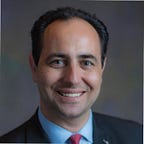How to Set Up and Entrepreneurship Ecosystem in an Underserved Community
I’ve gained insight over the past 20 years of working in communities that have not originally embraced entrepreneurship as a pathway, or had major entrepreneurial activities. There are a few key components you want to consider when launching a program in a community that is not accustomed to this way of thinking.
In some cases, remote or access to technology is limited. Consider and discuss these steps:
- Make sure you do what I call a Culture Shift. This usually happens through our Exploring Entrepreneurship program, in which people learn about entrepreneurship in a meaningful way by converting an idea to a startup business. We reviewed six major international programs, learned from them, and created one simple program that is like a boot camp. Sessions are 3–5 hours each, scheduled over 3–5 days.
- Within those sessions, define what entrepreneurship really is, what it takes to start a business, how to identify the ideal customer, how to finance to make money on it, and of course, logistically what you need to do to make it happen.
- It is critical to have a local resource or partner. Without one, it’s really hard to make anything happen. Your local partner should be somewhat embedded in the existing ecosystem or at least respected and can reach the locals within the community.
- Invite at least two local entrepreneurs who are accomplished enough that people want to learn more about them. You don’t want the biggest, most successful entrepreneur — you want someone the aspiring entrepreneurs can relate to — someone in which they can see themselves after they launch and grow their business. The ideal would be someone with 3–5 years in business, and at most two locations.
- We always have a pitch component, averaging 1–2 minutes per person. On this day, you might to have key players such as angels or VC heads attending. Here you can also invite local “big names” that people may admire.
- Finally, get daily feedback on the program. What do the participants like? What do they feel could improve? This could be a short survey of no more than 5 questions. On the final day, ask for full feedback of the program and referrals to people they may think might benefit from the program.
BEFORE YOU GO
We see our blogs as opportunities for dialogue. Please share your thoughts as comments.
Please note that this process is not carved in stone. It is for you to generate a discussion on such topics. Here are few questions to think about:
1. How do you keep your programs, lectures or workshops highly interactive?
2. Who do you invite to speak in your programs?
3. How long do you make your programs?
_____
Faris Alami is Founder and CEO of International Strategic Management, Inc. (ISM). He works internationally, presenting Exploring Entrepreneurship Workshops and other entrepreneurial ecosystem — related ventures.
#entrepreneurship #training #farisalami
